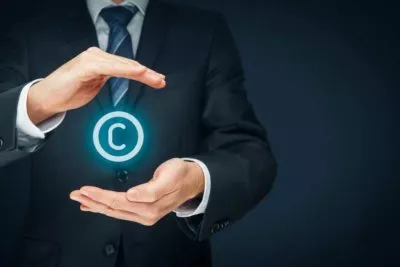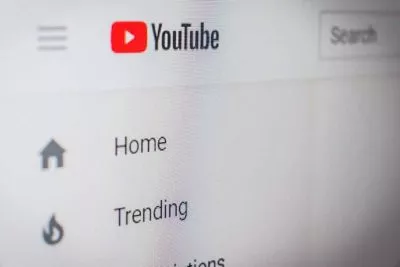- Originally Published on October 31, 2024
Debunking Common Legal Myths in the Online Adult Entertainment Industry

Get Help Right Away.
TRANSCRIPT
Working in the adult entertainment industry requires a solid understanding of the laws that affect your work. Unfortunately, there are many legal myths that can hinder content creators from protecting their rights or getting the help they need. I’m Alex Turi, a paralegal at Minc Law, the nation’s leading firm for online defamation and digital risk protection. Today, I’ll debunk some of the most common legal misconceptions to help you navigate your rights and obligations in this field.
Myth #1: You Can Use 30 Seconds of Copyrighted Material Without Consequences
Many believe that using up to 30 seconds of a song or video qualifies as “fair use,” but that’s a myth. Fair use depends on multiple factors:
- Purpose: Using content for educational purposes or parody can support fair use, while commercial use often doesn’t.
- Nature: Creative works, like music or movies, have stricter protections compared to factual works.
- Amount Used: Using small portions may favor fair use, but critical parts of the work are often still protected.
- Effect on Market: If your use competes with the original work’s market, it’s less likely to qualify as fair use.
How to Protect Yourself: Seek permission or licensing for copyrighted material used in commercial content. Many platforms offer built-in music libraries with pre-cleared tracks, and royalty-free music libraries are also a good option. For live webcam performances, be aware that if shows are recorded or shared later, copyright exceptions may not apply. Always check platform rules, as violating them can result in account suspension or banning.
Myth #2: Posting Content Online Means Losing Control Over It
Contrary to popular belief, posting content online doesn’t mean it becomes public domain. When you create content, you automatically hold its copyright, and posting it doesn’t waive those rights.
Protect Your Content:
- Review Platform Terms of Service: Some platforms may require permission to use your content in ads or on affiliate sites, limiting DMCA takedown options.
- Use Watermarks: Watermarking your content helps identify your work if it’s reposted without authorization.
- Monitor for Infringement: Regularly check for unauthorized uses and issue DMCA takedown notices where necessary.
Stay aware of new threats, such as AI model training and content scraping, which may involve unauthorized use of public content.
Myth #3: Being in a Photo or Video Means You Own the Copyright
The person who took the photo or video, usually the photographer or production company, holds the copyright, even if you appear in the content or paid for the shoot.
What You Need in a Content Creation Agreement:
- Clear Usage Rights: Outline who can use the content and how.
- Compensation Details: Specify payment terms.
- Model Release & Publicity Rights: Ensure both parties agree on how the content can be shared.
- Termination Policies: Include clauses on content removal or consent revocation.
If you’re working with a production company, insist on a clear written agreement to protect your rights. If needed, consult a lawyer experienced in adult industry contracts to review or draft your agreements.
Myth #4: Online Platforms Are Responsible for User-Generated Content
You might assume that platforms can be held liable for harmful content posted by users, but under Section 230 of the Communications Decency Act, platforms generally aren’t liable for third-party content.
What You Should Know:
- Platform Liability: Platforms aren’t liable for user content but must remove illegal content when notified.
- FOSTA/SESTA Exceptions: For example, platforms must take extra care with content linked to sex trafficking, leading some to more aggressively moderate adult content.
- Protect Yourself: Familiarize yourself with each platform’s policies, have backup plans, diversify your platform presence, and maintain records of all communications with platforms.
Knowing platform liability helps manage expectations and prepares you for challenges related to content removal.
Myth #5: Lawyers Will Report You to the Police If You Share Past Illegal Activity
Many fear discussing past illegal activities with lawyers. However, the attorney-client privilege ensures confidentiality, so anything you say stays between you and your lawyer.
Understanding Attorney-Client Privilege: Attorney-client privilege means your lawyer’s role is to advise and protect you, not to report you. There are a few exceptions, such as mandatory reporting laws for specific threats or child abuse, but generally, your past activities remain confidential.
Conclusion: Operating in the adult entertainment industry doesn’t mean you have to forgo your rights or protections. By understanding your legal protections, you can create a safe working environment, ensure fair compensation, and guard against harassment. If you need legal advice, Minc Law’s team understands the adult content industry and can provide guidance tailored to your needs.
Visit MincLaw.com or call the number on your screen to schedule a free case evaluation. Protect your work and secure your peace of mind—take the first step toward safeguarding your career today.
I’m Alex Turi, and I’ll see you in the next video.
END OF TRANSCRIPT
This page has been peer-reviewed, fact-checked, and edited by qualified attorneys to ensure substantive accuracy and coverage.



